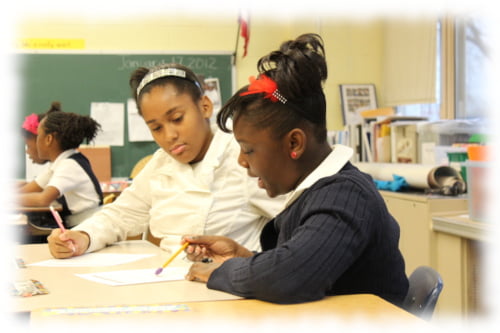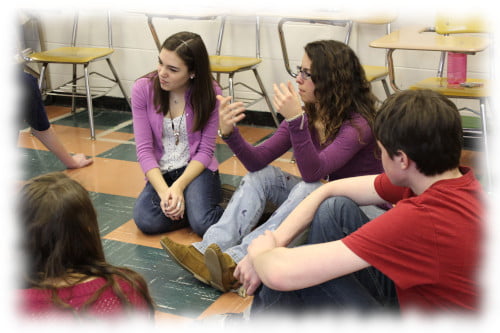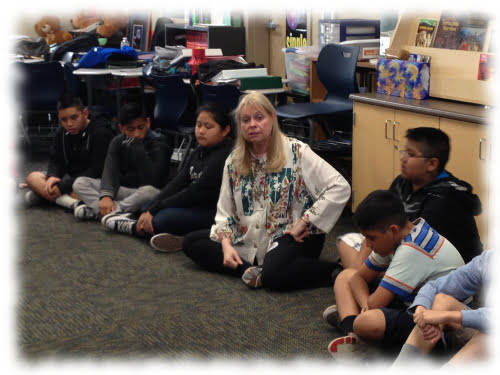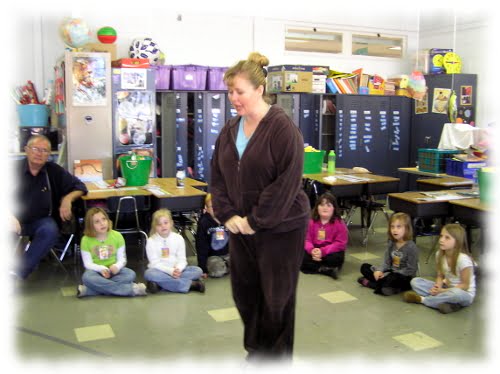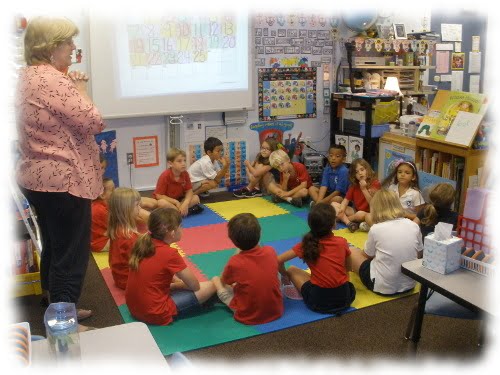For my next article in the continuing conversation on Classroom Management in Drama, I will address respectful feedback in the classroom. Teachers have posed many questions to us concerning management techniques. I will answer this and then request other ideas from this community. The questions are stated exactly as they have been presented to me. I will do my best to interpret the questions and provide an answer from my background. Just send us your ideas and thoughts and we will get the conversation started. None of us are as smart as all of us, so jump in and share what you know relating to each question presented. Creative classroom management can lead to creative thinkers.
Here is our next question about respectful feedback in the classroom:
"How can I teach students to comment on others’ work in a respectful and constructive way?"
Part One: An Introductory Process
Reflection—both self-reflection and the ability to respectfully reflect on others’ work—is important in drama. In order to build a kind and caring classroom, think about structuring reflection time as you would structure any other aspect of learning. I have found this structure important to achieving respectful feedback in the classroom. You might follow a pattern similar to the one I use throughout my curriculum:
- In stage one, I ask students a series of questions about the skills introduced in the lesson. For example, I might ask, “What was hardest for you to do today – concentrate or imagine?” or “What was easiest for you to do today – concentrate or imagine?” Students answer by raising their hands. This sets a routine and establishes reflection as a part of the dramatic process. This stage usually lasts for the first 2-3 lessons.
- In stage two, I ask students to comment on the skill(s) being introduced that day and/or on any previously taught skills. I might prompt, “What do you think you did well today?” or “What would you like to do better the next time we have drama?” I then call on students to give verbal responses and share “why” they responded as they did. This takes reflection a step deeper while also giving me an indicator of the learning: Are students using the drama vocabulary correctly? Do their answers indicate an understanding of the art form? Do they have an accurate picture of their own growth in applying the skill? This reflection period spans 2-3 lessons.
- In the third stage, I continue with the reflection process from stage two but I add the praising of others. I ask, “Who can give a word of praise to someone you saw concentrating today?” I follow their response to the question with a, “Why? What did you see them do?” This stage lasts 2-3 lessons, and I pay close attention to see when students move away from only praising friends or classmates of the same gender. Once they are comfortable with the process, they become more open to sharing praise with those who aren’t close companions.
- For stage four, I continue with the process outlined above, but my questions take on the beginning of a rubric. The questions now lay out what would have been seen or heard as achievement indicators for that skill. For example, I could ask, “Who can give someone a word of praise today for concentration? By that, I mean that the person was always focused on the activity, they did not laugh or break character, they did not talk to or look at the audience, and they were always thinking about what they were doing.” This is just a sample and you would add your own indicators of success. During this stage, the students are being prepared for the scoring rubric.
- Following on the process outlined above, in stage five, I ask if there was anyone in the class who did not receive a word of praise from a fellow classmate. Several hands usually go up. I ask if there is someone who could give them a word of praise for one of the skills. Someone always does and everyone feels successful.
The above process has worked for me. Feel free to try it or to adapt it for your own style. The key is structuring the reflection process for student emotional safety and deeper evaluation of your teaching.
Some final thoughts:
During a reflection, I do not ask the students to say negative things or give “constructive” criticism to other actors. There are two reasons for this. First, harmful feelings arise among classmates when they hear anything that sounds negative. Criticism can harm the ensemble feeling being built through drama.
Second, in theater, actors never give corrective notes to each other. That is the director’s job ONLY. The teacher in the classroom is in the place of the director, so if anything critical must be said, it rests with the teacher (director) to share that thought. I remember once asking a class to reflect and having one student harshly criticize another actor for not being loud enough—but VOICE skills had not been introduced yet. That is when I realized that opening critiques up to fellow actors who don’t have the whole picture regarding the art form can lead to hurt feelings and damaged confidence.
Asking students to self-reflect on skills they might improve is acceptable, as is asking what aspects of the group, as a whole, might be improved, but individual actor to individual actor critique is not recommended at this stage.
Lastly, I rarely give a negative note to anyone. I have found that praise is so powerful that it shapes the work in magical ways. I remember an acting teacher I had in graduate school who shaped our work through praise and another who only had critical things to say; we were all adults and I saw how the use of praise and criticism shaped our work in different directions. Those instructors informed and changed my thinking on the handling of constructive criticism and feedback.
I do recommend a combination of Liz Lerman’s Critical Response Process and group protocol work for older students, and I will outline that process in the next article. Come back for Part Two!


